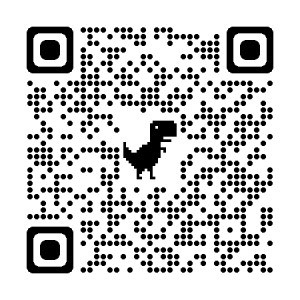
Money Lessons: Learning Money from Literature
Here are works of literature that will surely give you a hand on money lessons and how to overcome or avoid financial stress.
Do you have any financial problems and don’t know how to survive them? Reading literature will give powerful approaches and life lessons that you can coordinate with what you are experiencing right now.
The Great Gatsby
That’s it, a realistic message from the classic American novel. – The Great Gatsby
This novel was written by F. Scott Fitzgerald and inspired by his youthful romance with the socialite Ginevra King Pirie, and his out-of-control experiences at the parties he attended on Long Island’s North Shore in 1922.
Although the novel is about the persona of wealth being ill-gotten and addiction to the gambling world, it doesn’t always focus on how evil works with money – which many jazz-aged people are ashamed of. It is a sin of displaying too much wealth.
All in all, this novel will help us reflect on how we should spend our money in the right ways. Money and wealth should not overpower us as humans. Most people have this life goal of becoming rich, in which they can provide things for themselves. Still, whenever you achieve this goal, do not let this opportunity overrule you and still, keep your feet on the ground.
Literature: Rich Dad, Poor Dad
This lesson is caught from the debut book that will surely give us more understanding of financial stability. – Rich Dad, Poor Dad
Robert T. Kiyosaki is the writer of this all-time best financial book and first published in 1997. At first, publishers didn’t recognise this until one day they noticed him through one of his novels, changed their perspective on his works, and honoured his book as the number one financial book of all time.
Reading this book is your one-call-away friend when you struggle with money and looking for financial advice. One scenario in his book states that an eighth-grade dropout man who limits his spending towards what he earned is wiser than a college professor who spends too much. Also, having a property or business that has passive income is the best investment along with stable work that gives you a regular income.
The Richest Man in Babylon
A classic book which will genuinely help us to use our advances wisely and how debt can destroy our lives. – The Richest Man in Babylon
The main lesson that you can get from this literature written by George Classon published in the year of 1926 is that debt is not a good option. The book is about a man who later became wealthy but apparently experienced poverty due to debt. And explained that debt can literally help you in your darkest season but if you can avoid it while in the midst of black surroundings, keep away from it.
According to the book, debt is the number one reason why you’re not experiencing financial freedom. There are these debt nightmares that every time you make money, it is only used to pay off your existing debt – the circulation will happen repeatedly.
Literature: The Miser and His Gold
A story stating that unused wealth is worthless. – The Miser and His Gold
The miser and his gold is a treasured fable from Aesop. The fable has a very straightforward lesson regarding the wrong use of possession. Also, it sends directly to the reader their weaknesses as a human. The story circulated in 1867, a very long time ago but the financial essence of it is still alive.
The story is about a man who owned gold and dug a hole to hide his gold. To make himself happy, he always digs the hole to see his gold. One day, someone stole the gold during the night when the miser was sleeping and caused him sadness.
It Could Always be Worse
This is the main lesson that you can get from a New York Times book. – It Could Always be Worse
This Yiddish folk tale was written by Margot Zemach and published in 1976. One of the lessons from the book is that material desire is not always about purchasing something, your attitude has a big impact on it. So once realised, you may adjust your impulsive self to overcome it.
In addition, this folktale is made to inform kids on how to save money and only buy things that they need. Also, it gives parents an understanding of how to control their children and avoid spoiling them.
Literature: The Custom of the Country
A tragicomedy that will help us understand why overspending can easily destroy our lives. – The Custom of the Country
A novel written by Edith Wharton and published in 1913. It is about the story of Undine Spragg, a Midwestern girl who attempts to ascend in New York City society. Undine is a happy-go-lucky, selfish, and spoiled person. In fact, she entitled herself to a rich and extravagant lifestyle that made her live her life to the fullest.
Luxurious living doesn’t control her impulsive self even though her husband asked her to control it which causes her to overspend. Through that, she forgets to pay her bills until she becomes in debt. Also, overspending not only affected her personally but ruined her whole family.
The novel is reminding us to live a life that is synchronised with our wealth. It is okay to spend and live the life that you want as long as you’re paying your bills regularly. And lastly, listen to people’s financial advice, sometimes it may help you.
Madame Bovary
A life lesson that we can get from a historical novel which will remind us to limit our spending. – Madame Bovary
This novel gets its first appearance in the year 1856 at Revue de Paris and was written by Gustave Flaubert. It is a story of a provincial girl who lives beyond her means just to escape the lonely life in the province.
Money is very essential and must be used only for significant things. If you have some extra, you can buy things that you think you deserve. In the novel, Madame Bovary romanticises money and spends too much on luxury items. Most of her purchases are in the form of credit. One day, she has so many debts and she doesn’t know how to pay them which results in taking her own life.
The moral of the story is that always have an emergency fund to be prepared for unexpected life scenarios. Make sure that you spend less on what you earned and avoid paying on credit.
Literature: The Thousand Autumns of Jacob de Zoet
A story that gives a stand for something that you know is right. – The Thousand Autumns of Jacob de Zoet
This fiction novel by British author David Mitchell was published in 2010. It shows lessons about corporate greed and accounting fraud. The main character, Jacob, is an educated bookkeeper who is easily promoted for being honest in the field of accounting but demoted quickly because he disagrees to sign doctored financial accounts.
After doing the right thing, many great things happened to him. This only shows that having a strong work ethic, modesty and a sense of morality will surely give us a good space in this world. Do not ever be magnified by the world’s temptation because being honest will help you become the great version of yourself.
Money: Master the Game
A financial book that will surely help average people to secure a good future. – Money: Master the Game
Back in 2014, this financial book was written by Tony Robbins after 10 years of deep research. This book offers seven simple steps to achieve financial freedom specifically for average people. By reading this book you will gain the mindset of how to save money.
According to Robbins, for you to diversify your investment, you have to use the three bucket system. These buckets are tagged as security, growth, and dream buckets. Also, the best quotation found in the book that will surely get your attention is when Robbins said that, “You either master money, or, on some level, money masters you.”
Literature: The Beautiful and Damned
A novel packed with many financial lessons. – The Beautiful and Damned
This novel was written by American writer Francis Scott Key Fitzgerald in 1922 and will give us a glimpse of how to budget our money. The budget part goes with the story of Adam who realises that they really need to budget for them to afford their rent. By doing that, the first thing he did is record their income and track their spending.
After realising that they can’t afford their existing rent due to their income stream, they have decided to move to a smaller apartment. This only shows that we need to live a simple life in order to meet all of our life expectations. If big changes are needed, we have to adjust because it will make our life easier and help us avoid financial stress.
In the end, your fate is still in your hands. These works of literature are just recommendations for proper money management. Always remember, avoidance is better than regretting it all your life.
If you liked our “Money Lessons: Learning Money from Literature” and find it useful, check our blogs regularly for more information on how to get out of debt and get updates on personal wealth apps in Australia.




